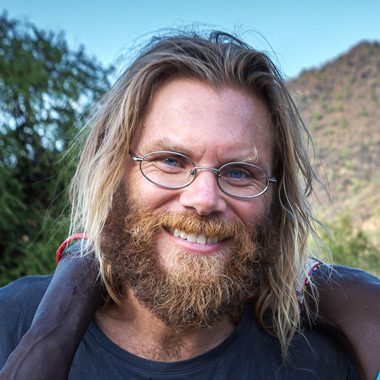About 18,000 members make up the unknown Dowayo or Namchi people of Cameroon, who live around the city of Poli in the northern region of the country. The English anthropologist Nigel Barley put them on the map by describing their rites and customs in the novel 'Innocent Anthropologist' (1983).
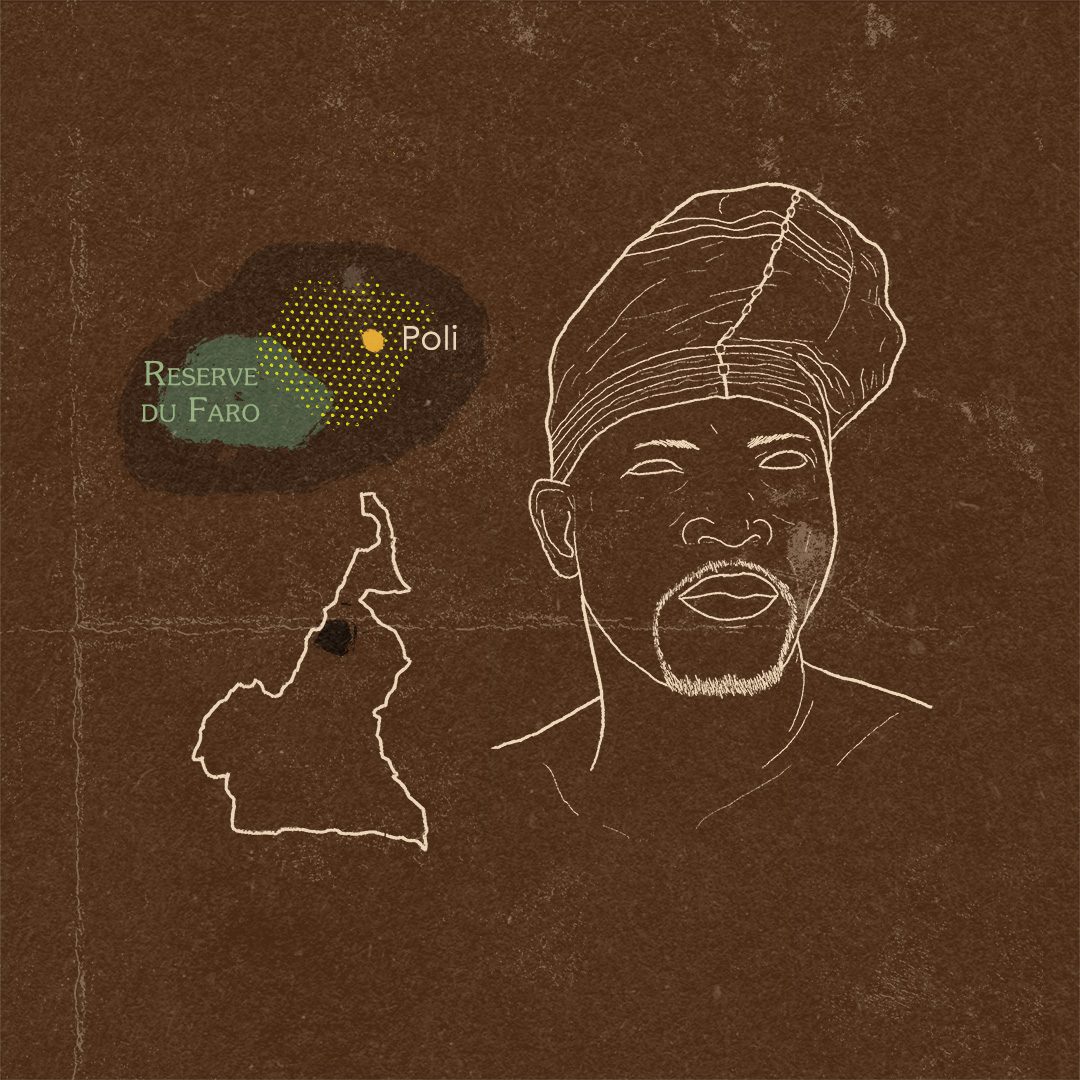
Location of the Dowayo people in the territory of Cameroon
Economy and social organization of the Dowayo People of Cameroon
The Dowayo people of Cameroon have an economy based on agriculture, herding and hunting. The more traditional Dowayo live near the Vokre Mountains. There, animist practices are still alive, as well as the vernacular architecture of the towns. It is precisely in a village in the Vokre Mountains where we usually camp during ethnographic trips to Cameroon.
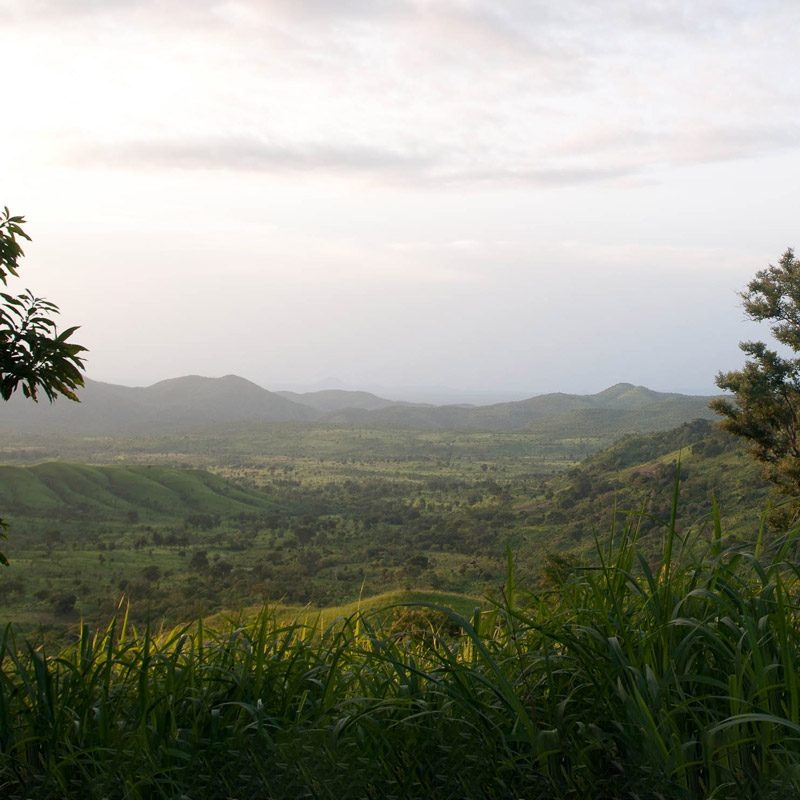
Dowayo people of Cameroon are governed by a caste system. In the highest position in society are the 'rain witches', followed by the ordinary Dowayo. In last place, there are the blacksmiths, who are considered guilty of some evils.
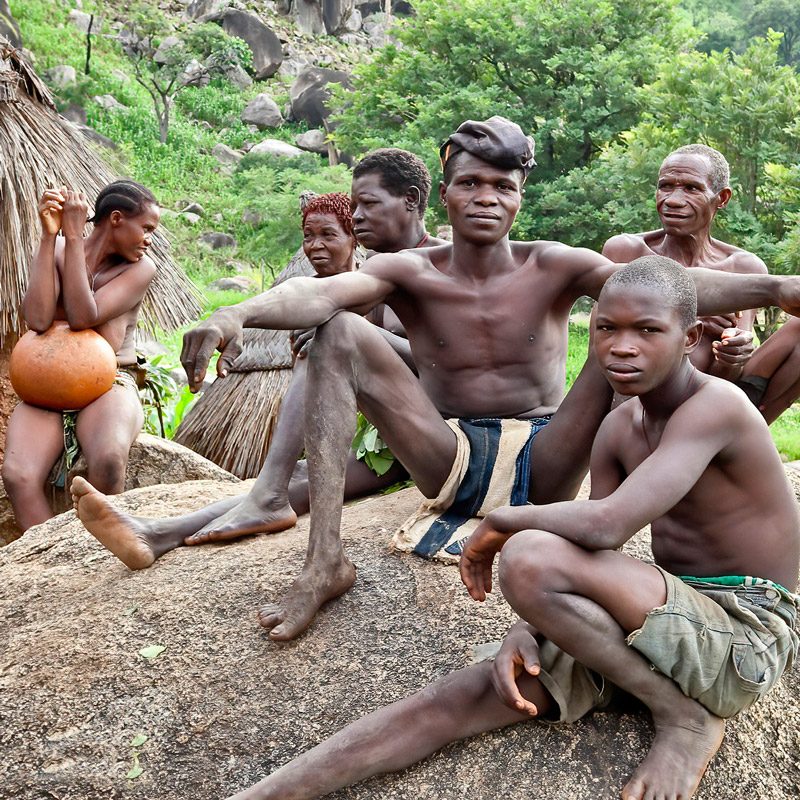
Visit to Dowayo community during an ethnographic trip to Cameroon
Do you want to meet the tribes of Cameroon?
Discover the culture of different ethnic groups on our trips to Cameroon< /a>. Click here to see our upcoming trips to Cameroon.< /a>
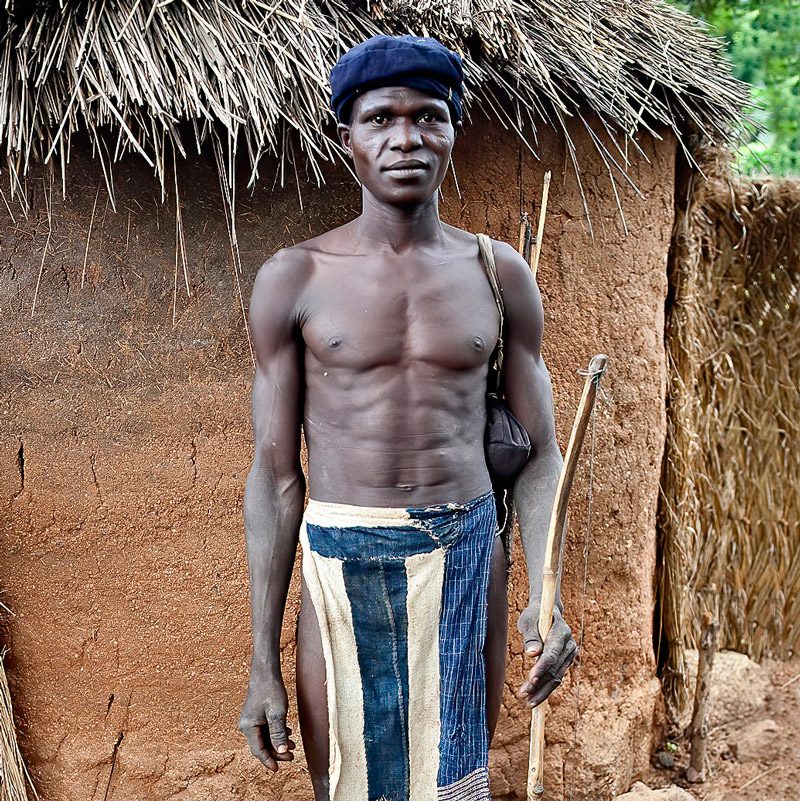
Man from the Dowayo people dressed in traditional costume during an ethnographic trip to Cameroon
Dowayo culture and religion
Dowayos are good clay craftsmen. The Dowayo people of Cameroon build beautiful decorated granaries, as well as ceramic vessels to store fresh water and millet beer, a fundamental part of traditional Dowayo culture.
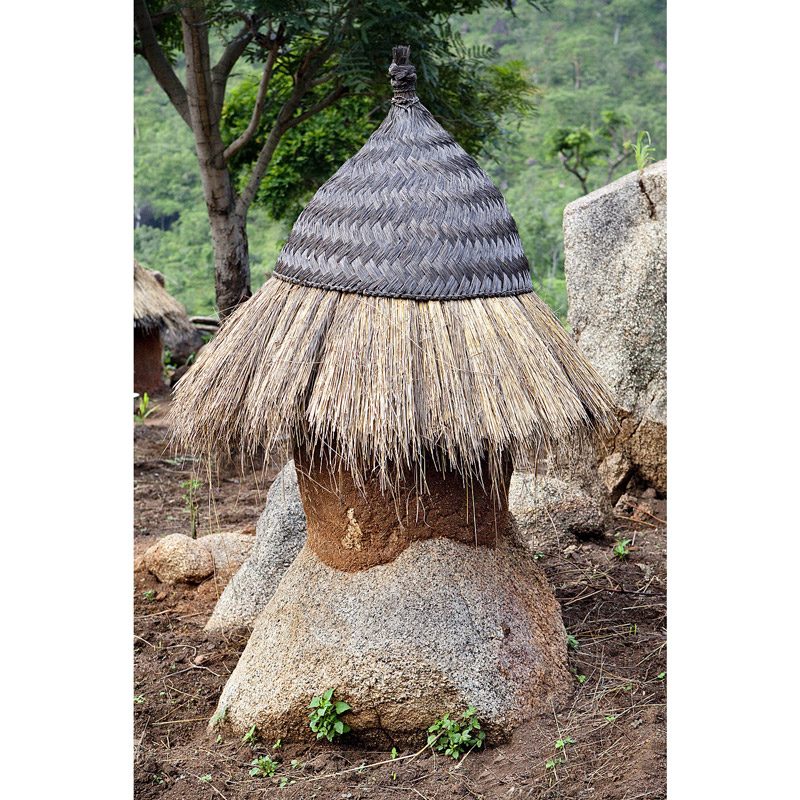
Granary of a Dowayo village visited during an ethnographic trip to Cameroon
Women in remote villages still wear a sex cover made from a simple bunch of acacia leaves. Some men still cover their penis with a gourd, like the famous Danis tribe men from West Papua. Also, indigo-dyed textiles are renowned among the Dowayo. With the pieces of cloth they make clothes and also cover their dead during the funeral.
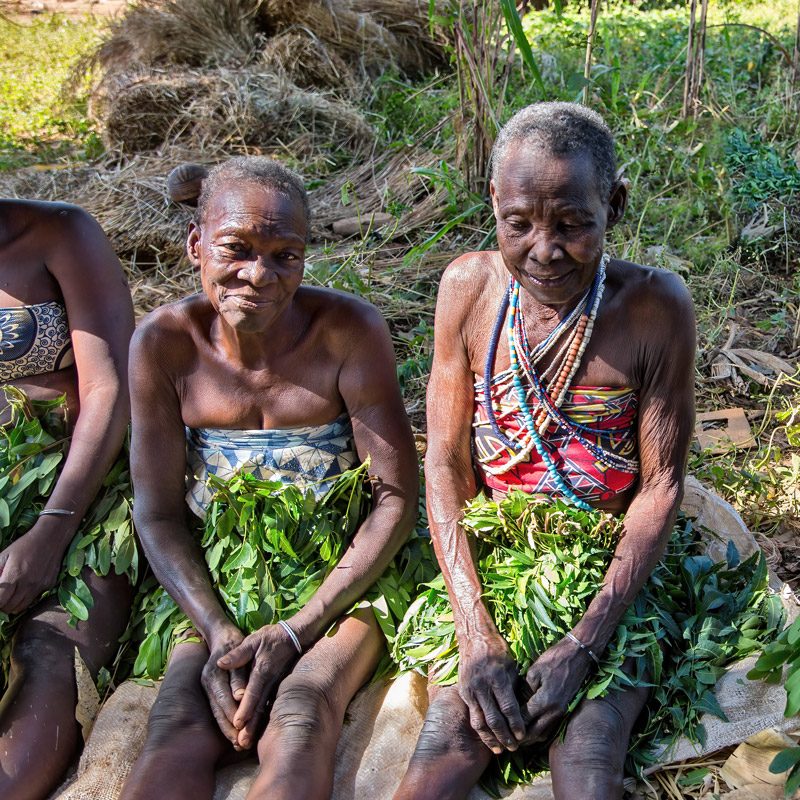
Meeting with women of the Dowayo tribe wearing sex covers made of leaves during an ethnographic trip to Cameroon
Skull Festival of the Dowayo People of Cameroon
When a Dowayo dies, the corpse is wrapped in a native cotton shroud and the skins of the cattle slaughtered for the occasion. After about two weeks the corpse is unearthed. His head is removed and examined to see if he has been subjected to witchcraft. The skull is then placed in a pot hung from a tree branch.
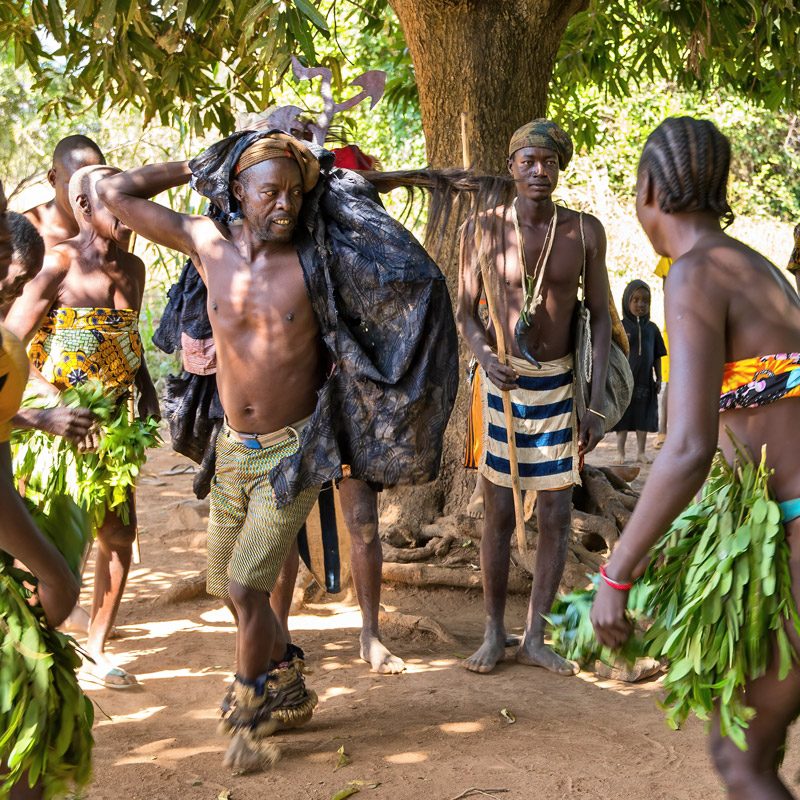
Traditional ceremony of the Dowayo tribe held during an ethnographic trip to Cameroon
After this, the skulls of men and women receive different treatment. Those of men are located in the open space behind the hut, where the skulls find their final rest. The women's skulls are placed behind the hut of the village where the woman was born (on marriage, the wife moves to husband's village; on death she returns to hers).
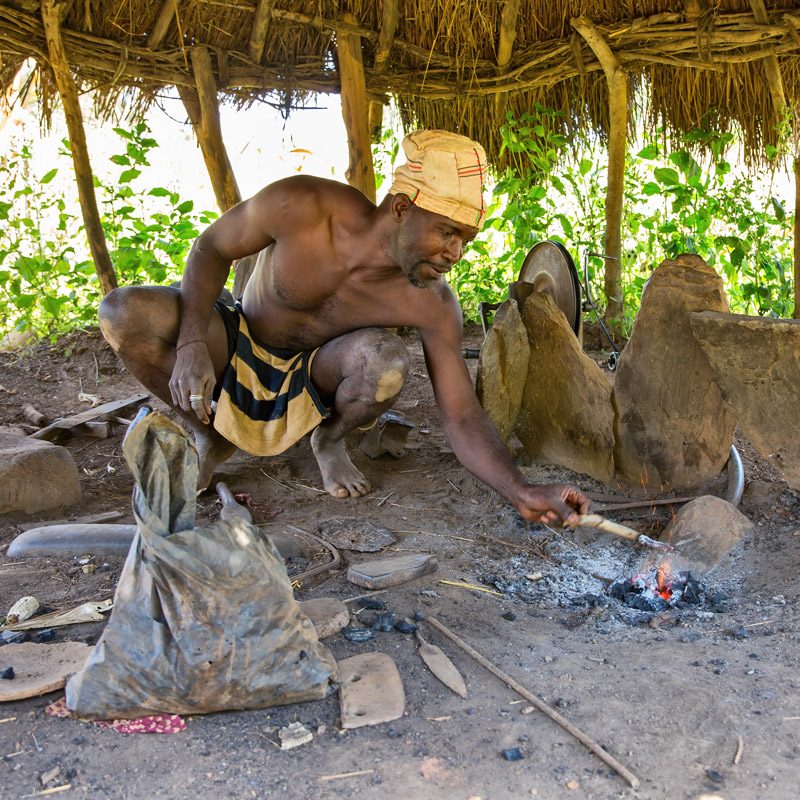
Priest of the Dowayo people performing a ritual during an ethnographic trip to Cameroon
After several years, the Dowayo believe that the spirits of the dead begin to bother their living relatives. They appear to them in dreams, cause them illnesses or oppose penetrating the entrails of women (the Dowayo believe in reincarnation). It is at that moment when the festival of the skulls is organized. During the celebration, animal sacrifices and dances are performed with the aim that the spirits stop bothering their relatives.
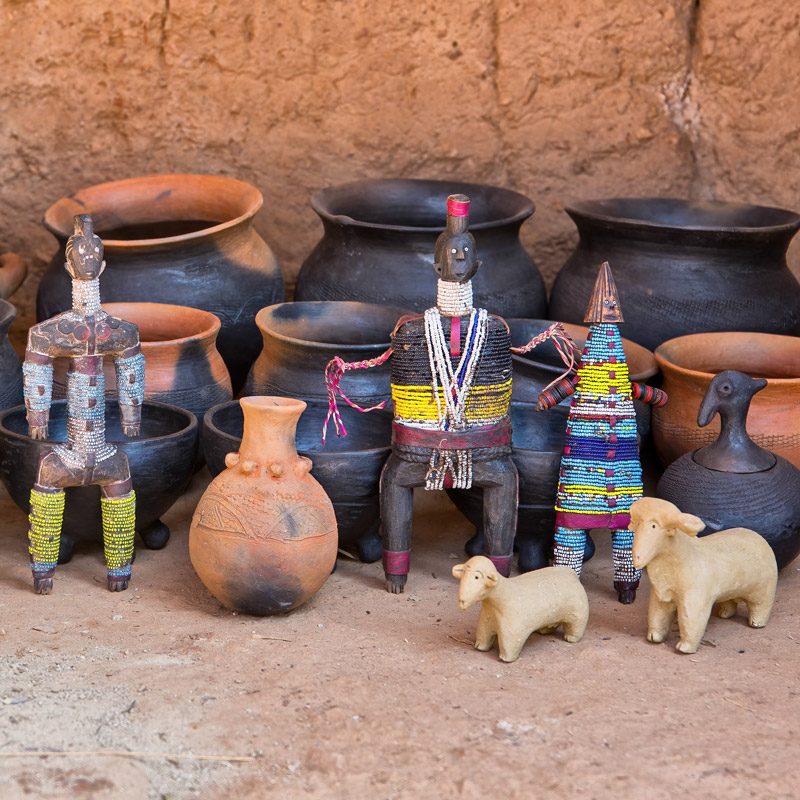
Display of pottery and dolls from the Dowayo people during an ethnographic trip to Cameroon
Challenges of the of the Dowayo People of Cameroon
The unstoppable advance of Islam towards the North of Cameroon (it is the religion of prestige among the elites of the region) threatens to affect the way of life and worldview of the Dowayo people. At Last Places, we use to work with 3 communities of animist Dowayo. We are giving them tools so that they can preserve their temples of worship and their sacred forests. Through responsible tourism, we open a third way for these tribal minorities that are stifled by external pressures.
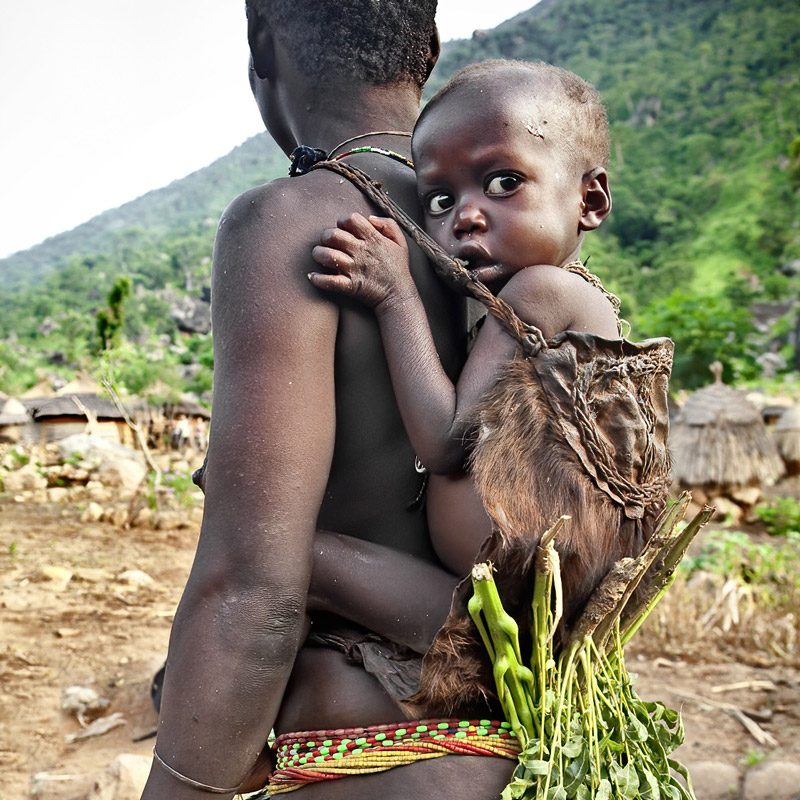
You can learn more about the Dowayo people of Cameroon at www.101lasttribes.com
© Photographs of the Dowayo people by Albert Farnós and Àngels Ferrer taken during ethnographic trips to Cameroon.
